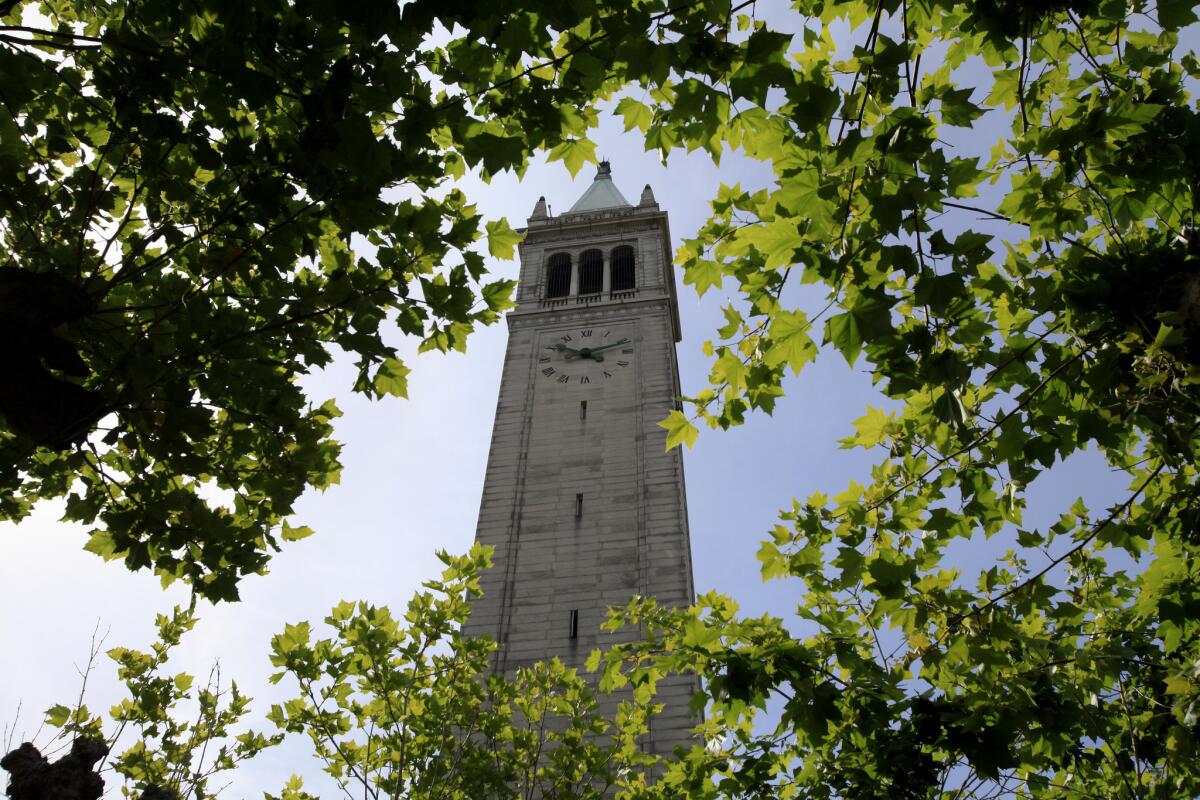Fraternities and sororities at Berkeley ban parties amid sexual assault allegations

Fraternities and sororities at UC Berkeley have taken a bold stance against sexual violence, voluntarily banning all parties following reports of two sexual assaults last week at off-campus frat functions.
Interfraternity Council President Daniel Saedi called it “relatively unprecedented” for the Greek system to suspend its own parties but said Friday that fraternities and sororities agreed to pause social events to figure out how to keep the functions safe.
“We needed to take some time off and really assess our situation,” said Saedi, a 21-year-old senior at Berkeley. “These are grave acts of violence that are occurring. They have no place anywhere in this country, let alone on college campuses.”
Saedi and Panhellenic Council President Divya Thomas, who oversees the school’s 12 sororities, announced the suspension this week in a Facebook post, saying they would “suspend all social events until we can reevaluate our risk management practices.”
Berkeley police say that two female students reported assaults at off-campus fraternity parties last weekend. According to the university’s crime statistics, 22 rapes were reported on-campus or in student housing in 2015, and four rapes were reported off-campus.
The party ban comes amid heightened attention regarding sexual assaults on college campuses, just months after the high-profile case of former Stanford swimmer Brock Turner, who sexually assaulted an unconscious woman. Turner’s six-month jail sentence drew public outrage.
The UC Berkeley administration also has been criticized for its handling of sexual harassment cases involving high-profile faculty members. Among the critics are students, who now appear to be taking their own steps to increase safety.
Saedi said there is no timeline for the ban. Members of all fraternities and sororities will meet this weekend to discuss safety measures related to sexual violence, alcohol consumption and other issues.
“Hopefully, over the weekend, we will craft a new set of operating standards that all fraternities and sororities will agree on,” Saedi said.
Voluntarily shutting down fraternity parties is unusual, but not unheard of. After a reported sexual assault at Emory University in Atlanta in 2014, the Interfraternity Council there also issued a self-imposed suspension of all social activities. But typically, the university administration is the one to impose bans on fraternities or sororities for hazing, drinking, sexual misconduct or other disciplinary matters.
Saedi said he realized not all students would be pleased with the suspension. But several students welcomed it.
“I’m glad at least they’re taking time out to step back and think about it,” student Arjun Mahajan told KNTV. “I think it’s a good opportunity to reflect about ... this issue.”
ALSO
Told to vacate, low-income tenants of complex near USC feel betrayed by nonprofits
Campaign retracts Leonardo DiCaprio’s endorsement of anti-development measure
LAUSD teachers earn too much to live in the affordable housing apartments built for them
More to Read
Sign up for Essential California
The most important California stories and recommendations in your inbox every morning.
You may occasionally receive promotional content from the Los Angeles Times.










